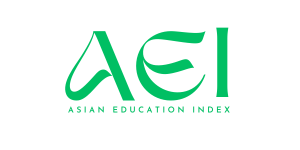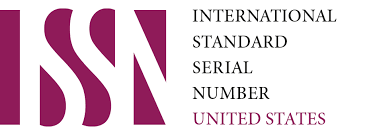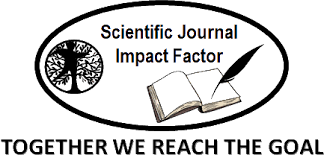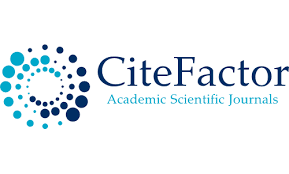Providing The Integration of Modern Pedagogical and Information - Communication Technologies in Higher Education
Keywords:
information and communication technologies, integration, higher education, electronic educationAbstract
The development of scientific and technical progress led to the emergence of electronic tools and their active introduction into various spheres of society. Their use has become an integral part of social, economic, political and educational spheres. Higher education institutions are actively using these funds to train highly qualified specialists. Information and communication technologies are a tool that helps to form the professional competence of students. The article examines the issue of integrating modern pedagogical and information and communication technologies, including electronic tools, at the university.
References
Fomenko N.S. Information and communication technologies in teaching foreign languages // INFORM. 2005. Issue 2 (139).
Sharipov F.F., Nasridinova G.R. Introduction of information technologies to the humanitarian education system // Bulletin of the National University of Tajikistan. ¬2015 year. No. 3-4. pp. 230-231.
Muravyeva G.E. Designing educational technologies: Proc. allowance ped for students and teachers. Universities, teachers of training courses for students and teachers / G.E. Muravyeva - Ivanovo, 2001. 123 p.
Gushchin A.V., Filatova O.N. Teacher's information and communication culture ¬as a leading aspect of the transition to a new qualitative state of pedagogical education // Fundamental researches. 2014 year. No. 8-2. pp. 454-458.
Abdukadirov A.A., Tursunov S.Q. Information technologies in education. Textbook for graduate students of Pedagogical University. T.: "Sparks of Literature", 2018, pp. 91-95.
Gordienko I.V., Reprintseva G.A. Psychological-pedagogical conditions for improving the professional qualifications of teaching staff in the continuous training system ¬// Azimuth of scientific research: pedagogy and psychology. 2016. V. 5. No. 2 (15). pp. 35-39.
Klinkov G.T. Historical ¬reasons for considering work as a particularly functional relationship // Balkan humanitarian studies. 2018. No. 1. pp. 47-49.
Shukhratovich, Shirinov Feruzjon. "The Field of Computer Graphics and Its Importance, Role and Place in The Information Society." Texas Journal of Multidisciplinary Studies 4 (2022): 86-88.
Tokhirovna, Khakimova Yoqutkhon. "Stages Of Implementation Of Distance Learning In Higher Education." Texas Journal of Philology, Culture and History 1 (2021): 38-39.
Хонбобоев, Хакимжон Икромович, and Дилшод Улугбекович Султанов. "РУКОВОДСТВО НАУЧНО-ИССЛЕДОВАТЕЛЬСКОЙ ДЕЯТЕЛЬНОСТЬЮ СТУДЕНТОВ ПРИ ОБУЧЕНИИ ПРЕДМЕТАМ ИНФОРМАТИКИ И ИНФОРМАЦИОННЫХ ТЕХНОЛОГИЙ." Актуальные научные исследования в современном мире 12-1 (2016): 63-65.
Хонбобоев, Хакимжон Октамович, Мубина Хакимжоновна Икромова, and Мухаммад-Анасхон Хакимжонович Икромов. "Ta’limda axbоrоt texnоlоgiyalarni qollashning oziga xоs xususiyatlari." Молодой ученый 3-1 (2016): 21-22.
Хайдарова, Сапияхон. "Создание SQL-запросов в реляционных базах данных." Вестник РГГУ. Серия: Информатика. Информационная безопасность. Математика 3 (2020): 8-19
Muydinovich, R. I. "Problems and solutions of teaching in credit-module system in higher education institutions." The American Journal of Social Science and Education Innovations 3.04 (2021): 721-727.
Marufovich, Aripov Masud. "Encryption of the quran and forecasting events." ACADEMICIA: AN INTERNATIONAL MULTIDISCIPLINARY RESEARCH JOURNAL 11.2 (2021): 1021-1026.
Йулдошев, Уткир, and Уктамжон Жуманкузиев. "Определение ведущих педагогических закономерностей и основополагающих принципов формирования информационной культуры детей школьного возраста." Общество и инновации 2.5/S (2021): 68-76.
Mamadjanova, S. V. "DESIGN FEATURES OF VIRTUAL LEARNING ENVIRONMENTS." European International Journal of Multidisciplinary Research and Management Studies 2.06 (2022): 1-5.
Toshpulatov, Raximjon I. "THEORETICAL FOUNDATIONS OF INFORMATION TECHNOLOGY." International Journal of Pedagogics 2.09 (2022): 53-57.
Juraev, M. M. (2022). Prospects for the development of professional training of students of professional educational institutions using electronic educational resources in the environment of digital transformation. Academicia Globe: Inderscience Research, 3(10), 158-162.
Shuxratovich, Shirinov Feruzjon, and Botirov Muzaffarjon Mansurovich. "PROBLEMS WORKING WITH COMPUTER GRAPHICS APPLICATIONS IN THE LEARNING PROCESS."
Normatov, R. N., M. M. Aripov, and I. M. Siddikov. "Analysis Method of Structural-complex System Indicators by Decomposition Into Subsystems." JournalNX 7.04 (2021): 68-71.
Muydinovich, Rasulov Inom. "The Role of Digital Technologies in Growing Secondary School Students to the Profession." Eurasian Scientific Herald 6 (2022): 137-142.
Marufovich, Aripov Masud, and Shirinov Feruzjon Shuxratovich. "BO ‘LAJAK INFORMATIKA FANI O ‘QITUVCHILARINING GRAFIK AXBOROTLAR BILAN ISHLASH KOMPETENSIYASINI RIVOJLANTIRISH." TA'LIM VA RIVOJLANISH TAHLILI ONLAYN ILMIY JURNALI 2.1 (2022): 183-187.
Downloads
Published
Issue
Section
License

This work is licensed under a Creative Commons Attribution-NonCommercial 4.0 International License.
User Rights
Under the Creative Commons Attribution-NonCommercial 4.0 International (CC-BY-NC), the author (s) and users are free to share (copy, distribute and transmit the contribution).
Rights of Authors
Authors retain the following rights:
1. Copyright and other proprietary rights relating to the article, such as patent rights,
2. the right to use the substance of the article in future works, including lectures and books,
3. the right to reproduce the article for own purposes, provided the copies are not offered for sale,
4. the right to self-archive the article.













